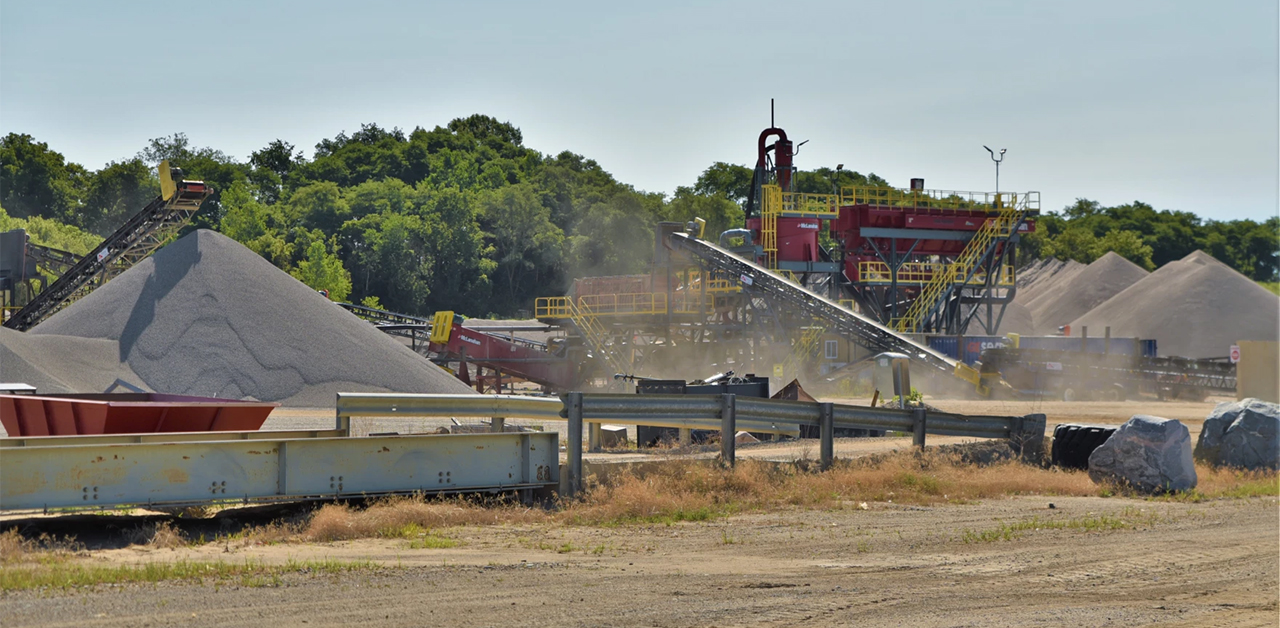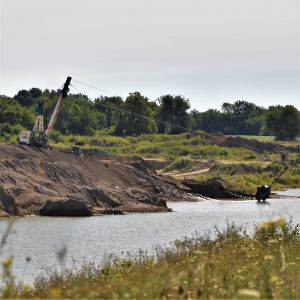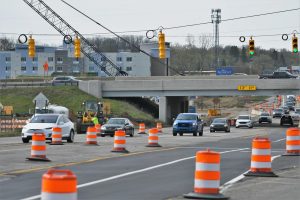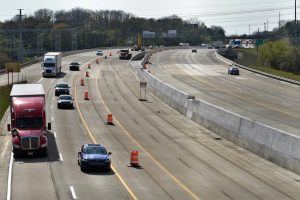State lawmakers consider taking away local authority to issue gravel mining permits
Business and union groups say those permit denials are starting to negatively impact the statewide aggregate supply chain.

A Michigan aggregate mining operation which obtained its permit from a township.
The Great Lakes region is blessed with an abundance of water. But water quality, affordability, and aging water infrastructure are vulnerabilities that have been ignored for far too long. In this series, members of the Great Lakes News Collaborative, Michigan Radio, Bridge Michigan, Great Lakes Now, and Circle of Blue, explore what it might take to preserve and protect this precious resource.
The Michigan House is considering legislation that would take local government control away when it comes to rock, sand and gravel mine permits. Supporters of the change say too many townships are declining permits.
The people who build roads are pushing the package of bills. This is not the first time this legislation has been introduced. But, now, Michigan is in the middle of Gov. Gretchen Whitmer’s efforts to — as she puts it — “fix the damn roads.” Aggregate – the gravel, sand and crushed stone that’s needed — is in greater demand.
Michigan unions, the Michigan Aggregates Association and the Michigan Chamber of Commerce are lobbying to take local aggregate mine permitting away from local government. They say give it to the Department of Environment, Great Lakes, and Energy (EGLE).

“Over the last couple of decades, the aggregate industry has been faced with unprecedented challenges in getting permit approval for new operations throughout the state,” says Mike Alaimo, the director of environmental and energy affairs for the Chamber.
The business and union groups say those permit denials are starting to negatively impact the statewide aggregate supply chain.
They’ve launched a media campaign called “Build It Michigan Strong”.
The Senate has already passed the legislation they want.
Rep. Donna Lasinski (D-Scio Township) is the minority leader in the House. She says there’s no doubt about greater demand for rock, sand and gravel.
“With the acceleration of our road repairs, they’re expecting that supply now to only last about five years.”

But she thinks completely taking away local government control is not the answer. She was recently on a panel held in her district with several experts.
Another member of the panel was Peter Psarouthakis, the supervisor of Sharon Township in western Washtenaw County. He doesn’t think giving EGLE the permitting authority would be good.
“I think it’s a pipe dream to think that they have the ability to regulate on a day to day basis like your local government does. We drive by every day so we can address things quickly.”
He says his township — which is considering a mining permit right now — is negotiating with the aggregate mining company to make sure there’s no unacceptable detriment to the community. And if something pops up later, the township has the authority to work with the company to fix the problem.
Mike Wilczynski is a certified professional geologist with more than 40 years of experience. He was also on the panel and thinks local control is important. But he also says while some townships are declining permits, in his opinion, others are too quick to say yes. He said one township-approved mine expansion resulted in a neighbor’s pond and wetlands being drained.
“These townships need education. These are complicated issues that need to be considered and they need to look at experts,” Wilczynski says.
Rep. Lasinski, says this can be solved without taking away local governments’ control.

“We need EGLE involved. But when it comes down to operations, hours, dust control those other things. That’s where local, local government has to have the voice of the community.”
At the same time, she says EGLE needs to better regulate aggregate mining operations.
“There have to be some statewide standards. It shouldn’t be that one community who’s perhaps not as prepared or doesn’t have the expertise or the committed public servants to ensure that there is good regulation and good standards of behavior for a mine can just kind of willy nilly have mines put in. Right?”
She says EGLE needs better regulations. EGLE does not need to be the sole authority issuing permits.
The unions and road-building related businesses say there are compromises that could be made in the House version. But Alaimo with the Michigan Chamber says local governments cannot be allowed to say no when there’s a growing need for the material that’s used in concrete and asphalt roads.
“So we think now is the time to push these bills forward so that we’re making sure that taxpayer dollars are used wisely and used efficiently.”
He says the alternative is trucking aggregate longer distances, adding to the cost. That means tax dollars won’t buy as many miles of road repair.
Trusted, accurate, up-to-date.
WDET strives to make our journalism accessible to everyone. As a public media institution, we maintain our journalistic integrity through independent support from readers like you. If you value WDET as your source of news, music and conversation, please make a gift today.

